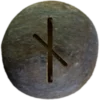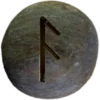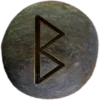Last Updated on June 11, 2025
Table of Contents


Introduction and Mythology
Höðr (pronounced HOE-thur) is a figure from Norse mythology. His name may also appear as Hod, Hoder, or Hödur. He plays a central role in one of the most tragic myths involving the death of Baldur, his brother. Though often misunderstood, he is not evil. Instead, he is manipulated and used as a tool by another god. ![]()
Höðr is blind. This blindness is both physical and symbolic. It highlights his vulnerability and the way others control him. He lacks the awareness to question those around him. Despite his impairment, he holds a position among the Æsir, the main group of gods in Norse myth.
The myth that defines Höðr appears in the Prose Edda, written by Snorri Sturluson in the 13th century. In this text, Baldur has dreams of his own death. The gods try to protect him by making everything in the world swear not to harm him. However, they overlook the mistletoe. Loki, known for cunning and malice, discovers this weakness. He crafts a dart from mistletoe and gives it to him.
Loki tells him to throw it at Baldur as part of a game the gods play. Since Höðr cannot see, he does not realize what he holds. He trusts Loki and follows his suggestion. The mistletoe strikes Baldur and kills him. This act shatters the gods’ joy and peace. Baldur’s death marks the beginning of the end—the first sign of Ragnarök.
Höðr’s Character and Role
Höðr does not act with intention to kill. The myth paints him as innocent, though he commits a grave deed. His role adds depth to Norse cosmology. Even gods can fall victim to deception. His blindness represents a lack of insight, not malice.
In the Prose Edda, he is not punished right away. The gods mourn Baldur. Later, Baldur’s son Váli is born and quickly grows to avenge his father. He kills Höðr, bringing justice in a brutal way. The swiftness of this revenge shows the seriousness of Baldur’s death.
Yet, Höðr returns after Ragnarök. In the renewed world, Baldur and Höðr both come back to life. They live in harmony, suggesting forgiveness and redemption. This return reflects themes of balance and restoration. Even those who make grave mistakes can find peace in the next world.
He is rarely mentioned outside of the Baldur myth. He lacks independent tales or heroic feats. His identity centers on the tragic event and its fallout. This limited role makes him unique among the gods. He is not a warrior, not a trickster, and not a ruler. He is a quiet presence whose actions change everything.
Mythic Themes and Symbolism
hos’s story ties into larger themes. It explores guilt without intent. It shows how manipulation causes destruction. Loki uses Höðr as a pawn. This reflects a deep anxiety in Norse myth—that knowledge and power do not always protect the innocent.
His blindness also works on a symbolic level. He cannot “see” the truth, much like many characters in Norse myth who ignore signs or fail to question fate. This makes him a tragic figure, not a villain. He acts in trust, not in spite.
Höðr’s return after Ragnarök reinforces the Norse idea of cyclical time. Death is not final. Destruction makes way for rebirth. In the end, he and Baldur live together in peace, beyond vengeance and pain.
Though Höðr plays a small role, he leaves a strong impression. His story warns of the cost of deception and the pain of unknowing harm. It shows how fate moves through both action and inaction. Through him, we see how even the quietest figures shape mythic history.
Runes Associated with Höðr
The Isaz (ᛁ) rune symbolizes ice, stillness, and isolation. Isaz reflects Höðr’s blindness and the isolation he experiences as a tragic figure. It also represents the immovable nature of fate, aligning with Höðr’s unintentional role in Baldur’s death.
The Nauthiz (ᚾ) rune signifies need, constraint, and necessity. This Elder Futhark rune mirrors the unavoidable circumstances surrounding Höðr’s actions. Loki’s manipulation and the gods’ failure to foresee the consequences emphasize these themes. ![]()
His Importance to Asatruar
Höðr reminds Asatruar of the impact of unintended actions and the weight of personal responsibility. His story highlights themes of vulnerability and fate, teaching followers to seek wisdom and awareness in their choices. As a figure caught in larger cosmic forces, Höðr symbolizes the challenges of navigating destiny with integrity.


